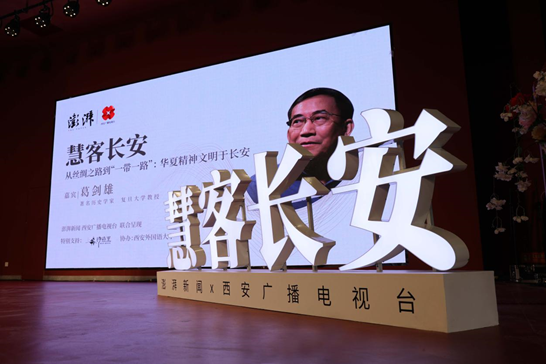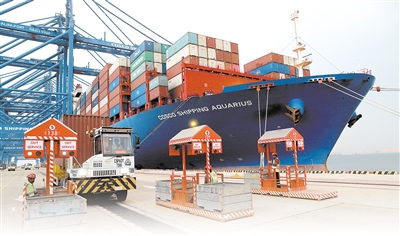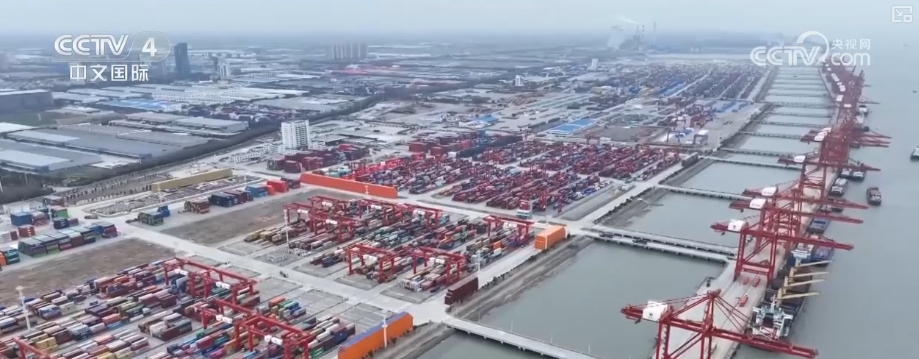US Secretary Of Defense: Don’t Make Mistakes 40 Years Ago, Conflicts With China Will Have Disastrous Consequences!
US Secretary Of Defense: Don’t Make Mistakes 40 Years Ago, Conflicts With China Will Have Disastrous Consequences!
At the Shangri-La Dialogue, Hegses clearly listed the Asia-Pacific as a strategic priority direction for the United States. Japan's significant increase in defense budget and Australia's nuclear submarine plan are all targeting China's activities in the South China Sea and the Taiwan Strait. All expressed their willingness to conflict
In recent years, senior officials of the US Department of Defense have frequently spoken out, expressing concerns about China's rapid development of military power. Earlier this year, U.S. Deputy Defense Secretary Hicks bluntly pointed out at a seminar at Johns Hopkins University that if the United States continues to use the old ways of dealing with the Soviet Union during the Cold War to deal with China, it will definitely repeat the same mistakes. She particularly emphasized that China today is completely different from the Soviet Union back then - China has not only achieved overtaking in some fields, but also has a global leading position in many high-tech military fields. To this end, Hicks summarized four important experiences: concentrating advantageous resources, strengthening execution capabilities, giving full play to the advantages of the technical alliance, and maintaining deterrence but not provoking. These suggestions may seem cliché, but reflect that the US military is seriously thinking about how to deal with the technological leap of the Chinese Navy and Air Force. Hicks' speech is at a time when China and the United States are intensifying. She clearly pointed out that China's military development has become an established fact and the United States must face this reality. Unlike the Cold War period of the United States and the Soviet Union 40 years ago, China now has the world's second largest economy and strong independent innovation capabilities. It is no longer realistic to rely solely on military encirclement. The speech specifically mentioned China's breakthrough in electromagnetic catapult technology and the development of sixth-generation fighter jets. Although the US military has the advantage in the number of aircraft carriers, its update speed is obviously lagging behind. This speech sparked widespread discussion in the US media, which generally believed that this represented the mainstream view of the Pentagon - to curb China's military expansion and avoid direct conflict. At the Singapore Shangri-La Dialogue in May, the new US Defense Minister Hegses made a tougher statement. He warned that China's military threat to Taiwan is becoming increasingly urgent and that any action of force will cause disastrous consequences. The Trump-nominated Defense Secretary frequently spoke at the Asia-Pacific Security Conference shortly after taking office. On the one hand, he called on regional countries to increase military spending and strengthen defense cooperation with the United States. On the other hand, he emphasized that the United States is unwilling to go to war and just wants to maintain a deterrent situation. It is worth noting that Chinese Defense Minister Dong Jun also attended the meeting. Although the two sides held a courteous meeting, the specific content of the conversation was not disclosed. Hegses' remarks have received positive responses from countries such as Japan and the Philippines, and these countries all say that stability in the Taiwan Strait is related to regional security.

The high-level American officials discuss China's military power so intensively stems from a series of alarming data. The latest report shows that the total number of Chinese naval ships has surpassed the United States, missile technology is in the world's leading position, and the J-20 fighter jet has excellent performance. In his speech, Hicks pointed out that China is transforming from a follower to a leader, a judgment that has been widely recognized by the US intelligence community. Rand's research report even bluntly stated that the cost of a military conflict with China will be unbearable. The mistake mentioned here 40 years ago refers to the quagmire that the United States has fallen into in the wars in Vietnam and Afghanistan. Today, the economy of China and the United States is highly dependent. Once a conflict breaks, the consequences of the global supply chain breaking out will be unimaginable. At the Shangri-La Dialogue, Hegses clearly listed the Asia-Pacific as a strategic priority direction for the United States. Japan's significant increase in defense budget and Australia's nuclear submarine plan are all targeting China's activities in the South China Sea and the Taiwan Strait. In response, Dong Jun’s Defense Minister responded that China has always adhered to a defensive national defense policy, but will firmly safeguard national sovereignty. Although both expressed their willingness to conflict, the two sides continued to move military actions in reality: US warships frequently cross the Taiwan Strait, and Chinese military aircraft flew around the island on a regular basis. This situation of fighting without breaking continues to test the crisis control capabilities of both sides. Looking back at history, when the United States dragged down the Soviet Union through an arms race in the 1980s, China's military strength was still relatively weak. The situation is completely different now - China has become the world's second largest economy, and the efficiency of military expenditure has been significantly improved. Hicks' suggestions actually reflect deep reflections within the United States: although they won the Cold War, the price was too heavy and now they need to deal with China in a wiser way. To this end, the US military is accelerating the development of new equipment such as B-21 bombers and unmanned ships, but China's breakthrough in hypersonic missiles and drones has put the United States in a lot of pressure. After taking office, Hegses continued the policy tone of his predecessor but his attitude was stronger. The Trump administration's US priority strategy is reflected in withdrawing from multiple international agreements and imposing tariffs on China, but the Defense Secretary also emphasized that he does not want a hot war. This pragmatic attitude stems from domestic public opinion - most Americans are more concerned about employment and inflation issues and oppose going to war with China. After all, China-US economic and trade ties are closely linked, and the conflict will lead to stock market fluctuations and soaring unemployment rates, which is something that both sides cannot bear. Despite the competition, the Chinese and US military still maintains communication channels. After Hicks' speech, the Pentagon adjusted its strategic deployment and tilted more resources towards the Asia-Pacific. The United States-led Quadrilateral Security Dialogue mechanism is becoming increasingly active, and China's Belt and Road Initiative is also continuing to advance. However, the two sides still have room for cooperation in areas such as climate change and counter-terrorism.

From the perspective of military tradition, the tenacious combat effectiveness demonstrated by the Chinese army in the War to Resist U.S. Aggression and Aid Korea left a deep impression on the US military. Now the achievements of the construction of China's Rocket Force and Strategic Support Forces have made the United States even more vigilant. Although US satellite monitoring shows that the gap in military strength between China and the United States is narrowing, the penetration capability of China's Dongfeng series missiles still makes it difficult for the US anti-missile system to withstand.

The key to avoiding conflict is to maintain dialogue. After the Shangri-La Dialogue, the Chinese and US Defense Ministers held a call and exchanged views on issues such as the code of conduct in the South China Sea. The devastating consequences of Hegses’ warnings are not false – the UN report shows that conflicts in major powers can lead to trillions of economic losses and a refugee crisis. There is a significant deviation in the United States' perception of China. Although Blinken and other officials often exaggerate China's threat, the fact is that China has always adhered to the path of peaceful development, has no overseas military bases, and does not launch wars abroad. In contrast, the United States has more than 800 military bases around the world, and the lessons of the wars in Iraq and Afghanistan are vivid in my mind. Hicks’ reminder is to hope that the United States will avoid repeating the same mistakes and learn to adapt to a multi-polar world. Specifically for military power comparison: China's navy's gross tonnage has grown rapidly but lacks practical experience, while the US aircraft carrier battle group has been tested for a long time; the Chinese Air Force has developed rapidly, the J-35 carrier-based aircraft is progressing smoothly, while the US-made F-35 is plagued by software problems; in the space field, China's Beidou system is becoming increasingly perfect and has outstanding anti-satellite capabilities, but GPS still dominates. Hegses's speech was interpreted by the media as a dual signal that both appeases allies and deters China. Secretary Dong Jun reiterated the defensive nature of the Chinese army. It is worth affirming that the warships of both sides can maintain professional communication when they meet, effectively reducing the risk of misjudgment. In the long run, China-US strategic competition will exist for a long time, and the key is how to control risks. Four suggestions put forward by Hicks are being implemented: the United States begins to restructure its supply chain and reduces its dependence on China's rare earths; and continues to impose technological blockades on Chinese companies such as Huawei, although this also hurts the US chip industry. From the perspective of the public, this game directly affects daily life. Ordinary American families rely on Chinese goods with low prices and good quality, and the price rise caused by the trade war has caused dissatisfaction. Many people believe that military expenditures are applied to areas such as education and medical care for people's livelihood. But the reality of geopolitical forces the defense minister to balance the interests of all parties. Ultimately, the US Defense Secretary’s warning is not without reason: repeating the Cold War mistakes will not benefit anyone. China and the United States need to seek cooperation in competition and maintain peace through strength. Data shows that China's military spending has grown steadily, and the gap with the United States has gradually narrowed. The future development of the situation depends on the wisdom of leaders of both sides, and disasters can only be avoided by maintaining restraint.






